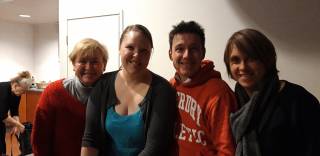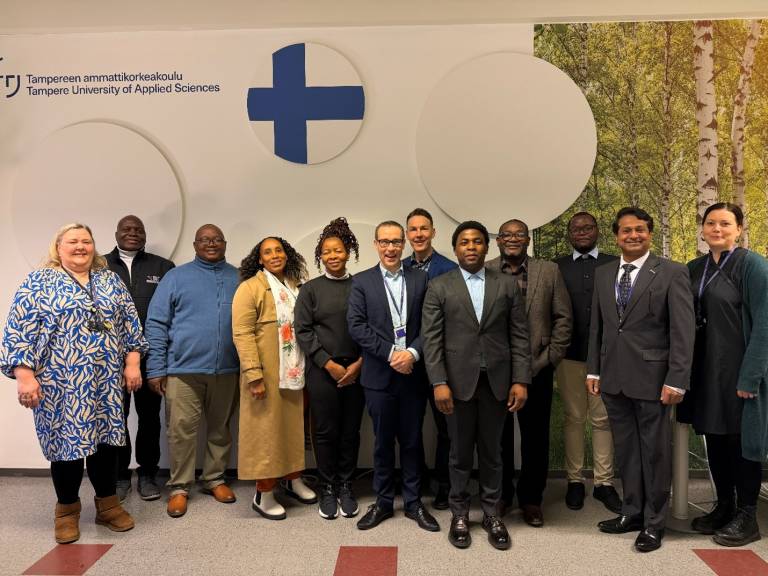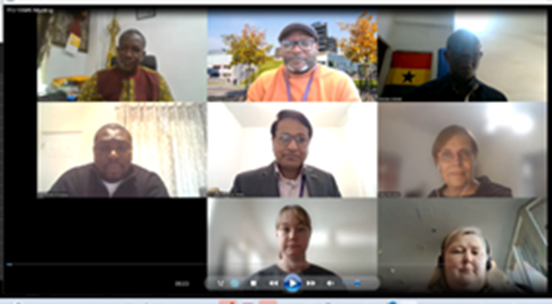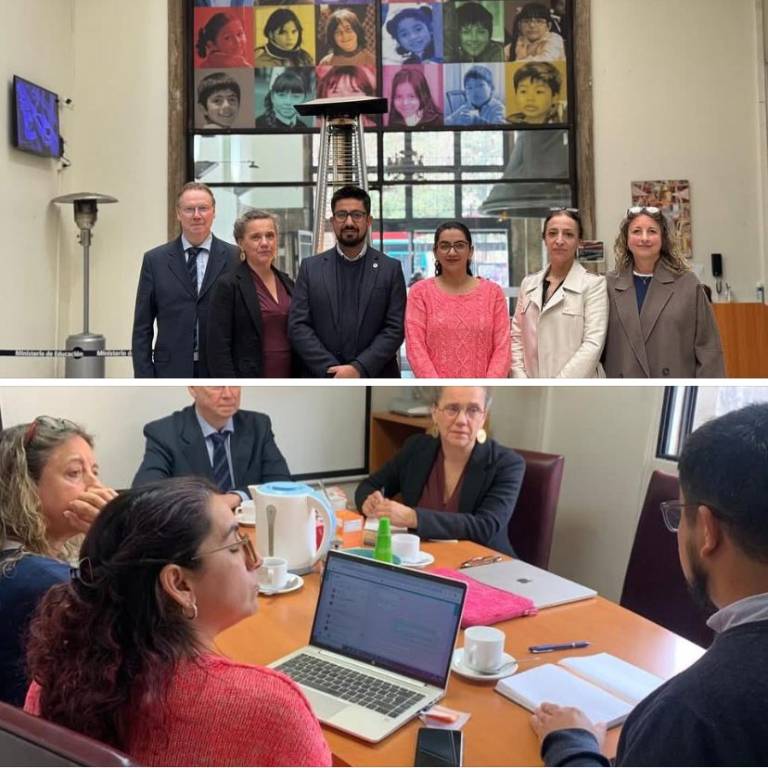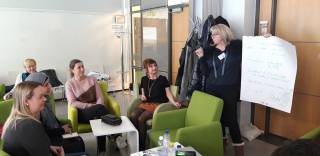
International weeks have been a tradition at TAMK since 2008. Today TAMK hosts approximately eight international weeks in different fields yearly. This year’s non-teaching staff international week was titled “International Week – The Secret of Innovative Partnerships” and it was organized in cooperation by the TAMK International Services, R&D and Innovation services, Study Services, HR Services and Sports Services and took place in mid March 2019. The week brought together professionals from 15 countries. These professionals work in many areas in higher education anywhere from researchers to sport and international services.
Best Practices, RDI and Getting to Know TAMK
Our week started off with an introduction to TAMK, the facilities, fields of education and services, and, of course, Finland as a country and its education system.
The participants had an opportunity to choose from two tracks:
A) Sharing is Caring track that included a cultural session and a two-day best practices workshop where participants brought in examples from their own higher education institutions
B) RDI track, where participants had the chance to present and discus about the best practices of the RDI processes of each university and common focus areas, to figure out and practice suitable tools from ideas to concepts and share their international networks and tools for networking.
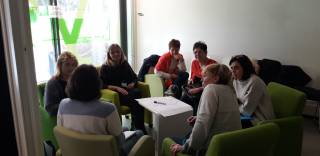
During the week, the international marketing at TAMK and Y-Campus concept were introduced to the participants. Both seemed to raise a lot of discussion, questions and interest in combining the higher education scheme with entrepreneurial studies in practice.
Each participant also had the chance to book individual meetings with TAMK representatives in their own fields in order to discuss current matters and services/practices in more detail.
The social programme included Finnish free-time activities such as Cross Country Skiing and Sauna evening with ice swimming, naturally, as well as magical moments during dinner created by the hospitality students.
Results of the two tracks
Sharing is Caring Best Practices workshop: During the workshop four main issues were identified; Mobility Issues, Staff Week Planning, Development (new systems), Staff Week Planning, European Challenges Discussion anf Mobility Issues – Trends and Troubles.
There seems to be switch in mobilities: on the other hand, students think that they do not need exchange experience as a means of internalization since they already are travelling so much, meet new people from different countries and keep in touch with them online. The other part of the change is the need for security: some of the students already have steady jobs, apartments, relationships, which are hard to leave behind. In our group, the discussion went on about the promotion of exchange possibilities and destination information. The reasons, why students select a partner university differ – for one it might be the sport opportunities offered, to another family ties.
As challenges, our group stated both changes of funding and administrative issues. EU’s decision to get arid of paperwork is welcomed, but causes lots of stress to many universities. Erasmus without paper (EWP) also has a very tight schedule: they plan to demand it already in the start of the next funding period, 2021.
Staff Week Planning
This group was very active and committed, since many of the participants were involved with the planning of their future Staff Week. One of the main questions they faced was how to involve the departments. If the Staff Week is organized by the international office, does it have any connection to the departments themselves? Should they have their own responsibilities?
Staff Weeks are usually offered only to partner universities – Why? Pro’s and Con’s: When concentrating to the partners, the content of the week could perhaps be more specific. Then again, a Staff Week is always a good way to introduce the university to possible new partners and a lot more cost effective too, compared to individual visits by delegations.
When talking about the budget of the Staff Week, the group pointed out the possibility of charging a participant fee. It was widely discussed but there are also points to be taken into consideration. If the fee includes accommodation and lunches, all participants stay at the same location and the transportation is easy, as well as the participants make good connections with each other when spending free time together too. If the destination country is expensive, the fee might rise so high that the low cost budget countries might not be able to take part.
The theme of the week should be selected outmost carefully – what do the organisers what to promote, how to go about it? How is the week planned and structured, lectures or workshops, visits to local companies etc.? Does the university gain international visibility with the staff week? Our participants thought that the most important thing of the staff weeks is the sharing of knowledge and benchmarking, without forgetting the new contacts and maintaining the old ones.
Development (new systems)
Our group discussed about the origins of the development – where does the need for the change/development come from? Focus on student means services should be easier and better. As a consequence, it means more effective and better use of worktime for staff too. Involvement of all parties should be from the beginning of the development project and it should be in an informal context. When talking about online systems to help our lives, it is important to keep the State of Mind: constant change!
European Challenges Discussion
At the brink of Brexit the biggest question is: “What then?” If Brexit goes through, all those students who planned to do their exchange in the UK either cancel or must be relocated. Funding questions if students are still send to the UK, who pays for the grants when Erasmus+ grant is no longer available – do the universities have their own money for such cases? Are we able to accept students from the UK partner university students as much as they want to send to us or should we have quotas for Asia, America, Africa, etc. and one for world after Brexit?
In general, the funding raises questions too. EU is cutting the grants, national policies change their focus point in funding and the student’s willingness to apply for exchange varies a lot. If the general attitude towards exchanges is no longer supportive, are there other means to promote exchanges? Should we promote practical training opportunities more if the more traditional exchange studies are not as attractive to the young anymore?
Results of the RDI workshops here: https://padlet.com/ella_kallio/redgsca2mqb0
Krista Merikoski, Tampere University of Applied Sciences



